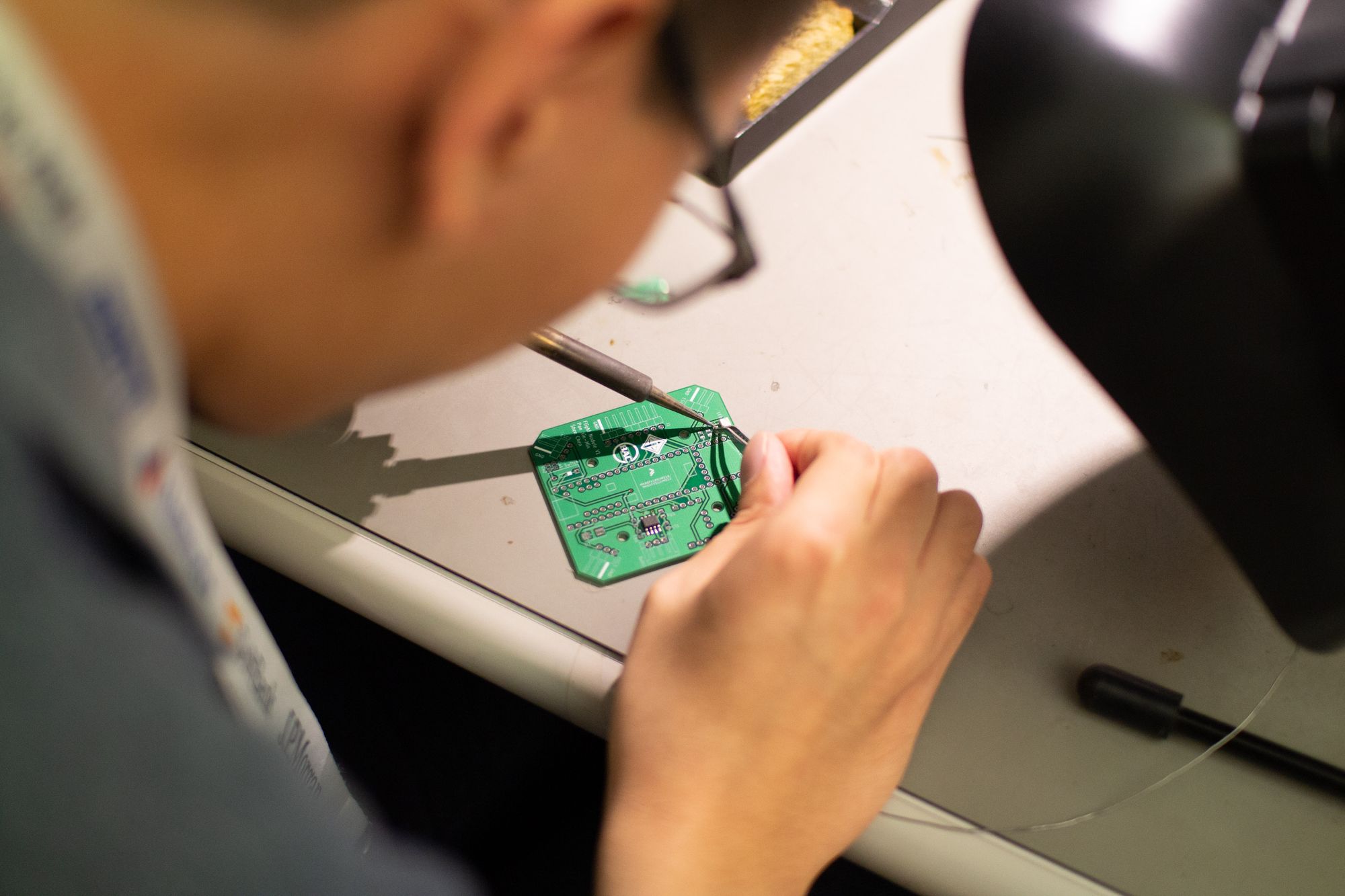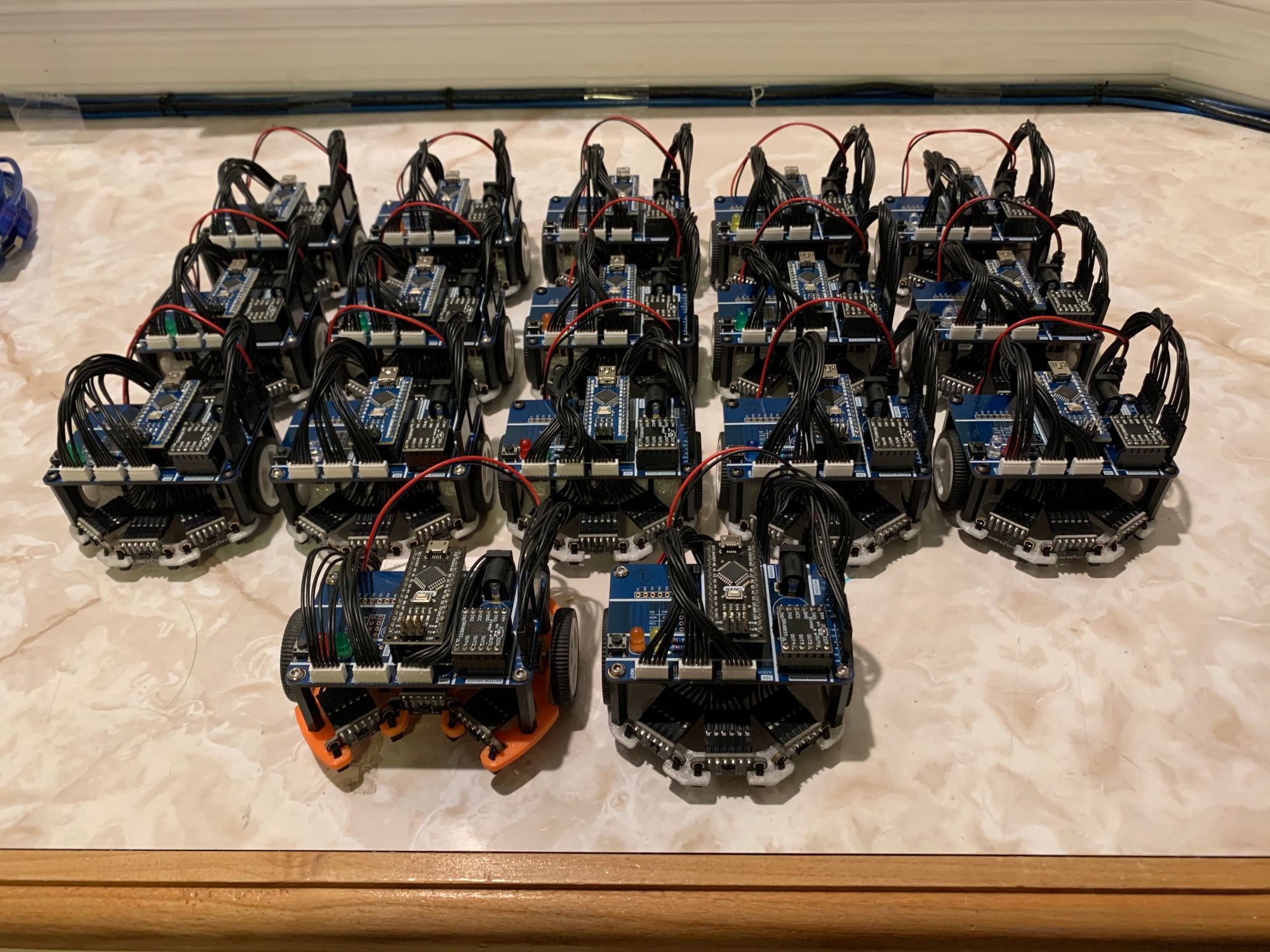HOPE
EE 198: Hands-On PCB Engineering is an introductory course to printed circuit board (PCB) design and layout practices and concerns. It is intended for students with some experience with circuits who are interested in learning about and gaining or improving PCB design and assembly skills, and particularly those who are part of or intend to join engineering student organizations with working knowledge in PCB design.
HOPE Website
Micromouse
The Berkeley IEEE Student Branch’s Micromouse DeCal is a hands-on course aimed at undergraduates with an interest in robotics. In the class, teams of 2~5 students are formed to build and program autonomous, maze-solving cars that follow the standards set in IEEE’s Micromouse competition.
The course assumes no experience and will be based around a series of labs and project milestones that cover a wide range of robotics concepts. The course will expose students to Arduino programming, autonomous navigation, sensors, PID, and basic electrical engineering, while preparing them for an in-class competition at the end of each semester. Teams are also provided with the opportunity to qualify for funding to attend competitions among other schools in California and neighboring states.
Micromouse Website
EECS151 Tapeout
This project-based course is a follow up to EECS 151: Introduction to Digital Design and Integrated Circuits, where students will learn principles, components, and methodologies for large scale digital System-on-Chip (SoC) design. Students who designed a CPU core in the EECS151LA ASIC (application specific integrated circuits) lab will learn how to use Chisel (a hardware description language) and Chipyard (an agile hardware design framework) to integrate their core into a full-scale System-on-Chip (SoC). While covering the basics of end-to-end SoC integration and parametrizable computer architecture, the course is primarily a hands-on experience. A class SoC is planned to be taped out in the open-source Skywater 130nm process at the end of the semester.
EECS151 Tapeout WebsiteAdvanced PCB Engineering (APE)
This course introduces advanced printed circuit board (PCB) design and layout, with a focus on more complex considerations and more nuanced experience with standard tools than the introductory Hands-On PCB Engineering (HOPE) course. It is intended for students with previous PCB design experience (preferably HOPE) and some basic experience with upper division-level circuit design. Students interested in developing PCBs for class projects, research, or engineering student teams will benefit from this course.
APE Website